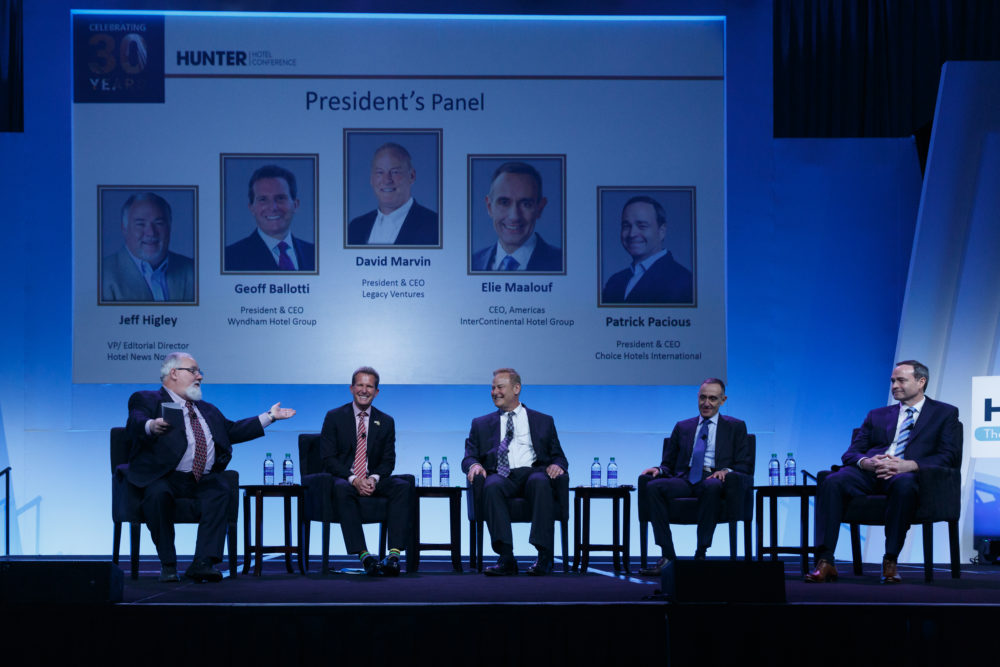Hotel Management featured the Hunter Hotel Conference President’s Panel:
“A late addition to the panel was David Marvin, founder and president of Legacy Ventures, who was pinch-hitting for Ross Bierkan, president and CEO of RLJ Lodging Trust, who couldn’t make the conference due to weather. Legacy, which has nine hotels in its portfolio, the bulk of which are in Atlanta, began investing in and developing hotels back when the Summer Olympics came to Atlanta, in 1996.
Because Legacy is an owner/operator, Marvin came into the discussion with a vantage point distinct from his fellow panelists. According to Marvin, “Hotels are the most under-demolished real estate classes out there. Fresh ideas and assets make sense.” He went on to take brands to task for what he perceived to be expenditures with no return on investment. “It’s insidious when brands make owners spend money on certain amenities and designs that are unproven and don’t have a ROI,” he said. “New brands are a good idea, but there has to be some constraint and thoughtfulness. Our industry isn’t disciplined enough. ….
For owners, keeping expenses at bay is another concern and a more frequent killjoy in light of ballooning labor and CapEx costs.
While RevPAR only speaks to the top-line, Legacy’s Marvin figures that 2-percent year-over-year RevPAR growth is just enough to keep up with the burgeoning costs. That, however, keeps margins tight.
How it delivers that, he said, is through guest experience. “You have to deliver that,” he said.
Delivering a strong guest experience is vital for midscale hotels today—ever more so as aging baby boomers exit the workforce. Choice’s Pacious cited the number 10,000 as the amount of boomers retiring every day. “Their discretionary income is going to be spent on experiences, hotels,” he said. “And much of that spending will be in midscale because they don’t have those corporate cards anymore.”
Or, maybe the most intrepid of boomer will try Airbnb—and with the home-sharing site in name now adding hotels, it could become an even more omnipresent booking option. Most hotel CEOs acknowledge the meteoric rise of Airbnb (“They are attracting more and different people for longer stays,” said Pacious; “They have built a brand name,” said Maalouf), though still aren’t buying into it as an existential threat.
“They aren’t providing certainty,” Pacious said, which is our “wakeup call to stay on top of providing guests what they want. Airbnb is a lesson for all of us.”
To Maalouf, there’s Airbnb 1.0 and then, “What’s next?” he asked. Airbnb is becoming more nuanced, adding hotels, experiences, verified homes and quality control, and a host of other initiatives to become not only a full-fledged travel company but a threat to Expedia and Booking.com. “Airbnb,” Maalouf said, “is not invested all the way; they aren’t making commitments to owners to deliver results. We have to make sure we are a differentiated experience.”
According to Marvin, Airbnb must be held to the same standards as traditional hotels, but he is convinced Airbnb is a force to be reckoned with. “As you think about developing new hotels, you have to think about your supply-and-demand analysis,” he said.”

